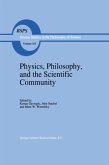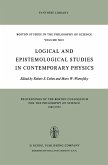Geometry has fascinated philosophers since the days of Thales and Pythagoras. In the 17th and 18th centuries it provided a paradigm of knowledge after which some thinkers tried to pattern their own metaphysical systems. But after the discovery of non-Euclidean geometries in the 19th century, the nature and scope of geometry became a bone of contention. Philosophical concern with geometry increased in the 1920's after Einstein used Riemannian geometry in his theory of gravitation. During the last fifteen or twenty years, renewed interest in the latter theory -prompted by advances in cosmology -has brought geometry once again to the forefront of philosophical discussion. The issues at stake in the current epistemological debate about geometry can only be understood in the light of history, and, in fact, most recent works on the subject include historical material. In this book, I try to give a selective critical survey of modern philosophy of geometry during its seminal period, which can be said to have begun shortly after 1850 with Riemann's generalized conception of space and to achieve some sort of completion at the turn of the century with Hilbert's axiomatics and Poincare's conventionalism. The philosophy of geometry of Einstein and his contemporaries will be the subject of another book. The book is divided into four chapters. Chapter 1 provides back ground information about the history of science and philosophy.
`...a carefull and scholarly discussion of the history and philosophy of geometry from the 1850's, marked by Riemann's generalized conception of space, and ending with Hilbert's axiomatics and Poincaré's conventionalism at the beginning of the century.'
The Modern Schoolman
`This is a deeply learned, scrupulously careful, very informative book which was well worth writing... In sum, Toretti has written carefully, with much insight, deep and broad learning, and sober judgement on a topic of profound difficulty and interest.'
Australian Journal of Philosophy
`Torretti has written a very useful book which helps fill a large gap in the literature on the philosophy of mathematics.'
The Philosophical Quarterly
`It delves into the contributions of many neglected writers and dispells myths concerning the contributions of others, which have too often been perpetuated in the philosophical literature... I suggest that it deserves to become a standard word.'
Dialogue
The Modern Schoolman
`This is a deeply learned, scrupulously careful, very informative book which was well worth writing... In sum, Toretti has written carefully, with much insight, deep and broad learning, and sober judgement on a topic of profound difficulty and interest.'
Australian Journal of Philosophy
`Torretti has written a very useful book which helps fill a large gap in the literature on the philosophy of mathematics.'
The Philosophical Quarterly
`It delves into the contributions of many neglected writers and dispells myths concerning the contributions of others, which have too often been perpetuated in the philosophical literature... I suggest that it deserves to become a standard word.'
Dialogue
`...a carefull and scholarly discussion of the history and philosophy of geometry from the 1850's, marked by Riemann's generalized conception of space, and ending with Hilbert's axiomatics and Poincaré's conventionalism at the beginning of the century.' -- The Modern Schoolman
`This is a deeply learned, scrupulously careful, very informative book which was well worth writing... In sum, Toretti has written carefully, with much insight, deep and broad learning, and sober judgement on a topic of profound difficulty and interest.' -- Australian Journal of Philosophy
`Torretti has written a very useful book which helps fill a large gap in the literature on the philosophy of mathematics.' -- The Philosophical Quarterly
`It delves into the contributions of many neglected writers and dispells myths concerning the contributions of others, which have too often been perpetuated in the philosophical literature... I suggest that it deserves to become a standard word.' -- Dialogue
`This is a deeply learned, scrupulously careful, very informative book which was well worth writing... In sum, Toretti has written carefully, with much insight, deep and broad learning, and sober judgement on a topic of profound difficulty and interest.' -- Australian Journal of Philosophy
`Torretti has written a very useful book which helps fill a large gap in the literature on the philosophy of mathematics.' -- The Philosophical Quarterly
`It delves into the contributions of many neglected writers and dispells myths concerning the contributions of others, which have too often been perpetuated in the philosophical literature... I suggest that it deserves to become a standard word.' -- Dialogue








